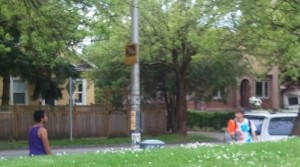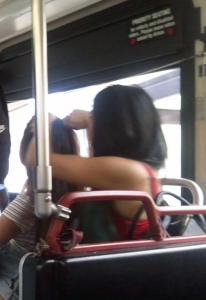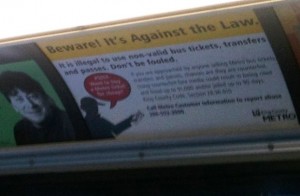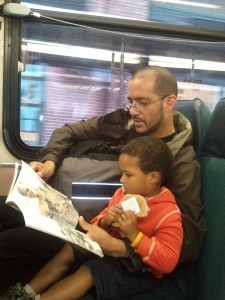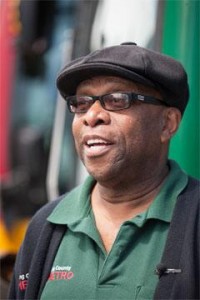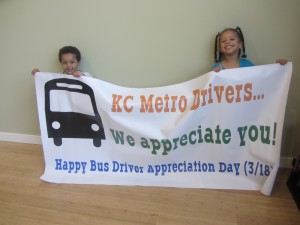Yesterday, after tiring of the wait for my six-, then eight-, then ten-, then twelve-minute late 27, I resorted to the 4. I was immediately glad I did, despite the fact that the bus was (per usual) extra crowded, and I ended up standing in the no man’s land with poor pole access.
You see, Smooth Jazz was at the wheel.
Riding on Smooth Jazz’s bus always feels a bit like a celebrity sighting for me. (Not surprisingly, many of the people I consider “celebrities” are bus drivers.) As soon as we finished our excruciating creep up James, he turned on his trademark mellow music. (One of these days, I’m going to start making requests.) By then, I had a seat, and a view of all the goodness that was taking place around me: Small talk. Flirtations. Coworker gossip. Laughter.
A man got on a few stops past Harborview with a box of various goodies, including fruit and some Easter-related toys. Across from him was a woman with infant twins and an older girl, who was probably around eight. The mother was holding one of the babies on her lap while her daughter struggled with the other. The double stroller was stowed awkwardly nearby in the wheelchair area.
Before Box Man had been on a full block, he offered some of the toys to the girl, gesturing to the babies to indicate that the gifts were to be shared. The girl looked to her mother for approval before accepting, then held the toys at arms’ length, either out of amazement at her good fortune or healthy suspicion.
A few minutes later, the mother rang the bell for my stop, so I offered my assistance getting everything–stroller, babies, big kid, bag, and new toys–off the bus. She matter-of-factly handed me a chubby, sweet-smelling baby and proceeded to gather her things. Together–each of us balancing a little one on a hip–we maneuvered the double stroller contraption down the bus steps and set it on the sidewalk, stowed the new toys, and strapped everyone in. Then, we headed in our respective directions.
It is likely that I will never see that woman or her children again. It is even more likely that in two months, or a year, or five years, I will forget the beautiful surprise (the gift!) of being handed a stranger’s precious baby, of cooperating with her to overcome a challenge I know well. Of smelling that sweet chubby cheek for a few moments at the end of a challenging day, on my way to see my own precious (not so) babies. (Chicklet’s about to be in Kindergarten, people!)
But whether these experiences are remembered consciously is not particularly important. (This is a good thing, since my memory has been basically shot since I was busing while pregnant the first time.) It is these daily interactions that inform who I am and how I view my community. Sometimes, they change my perspective. Often, they deepen my compassion or my gratitude. Always, they make an impression.
Despite all the drama-filled, funky rides I’ve endured (Woman on the 14, I feel you!), despite all the annoyances, despite even the looming cuts, I cannot imagine life any other way.

